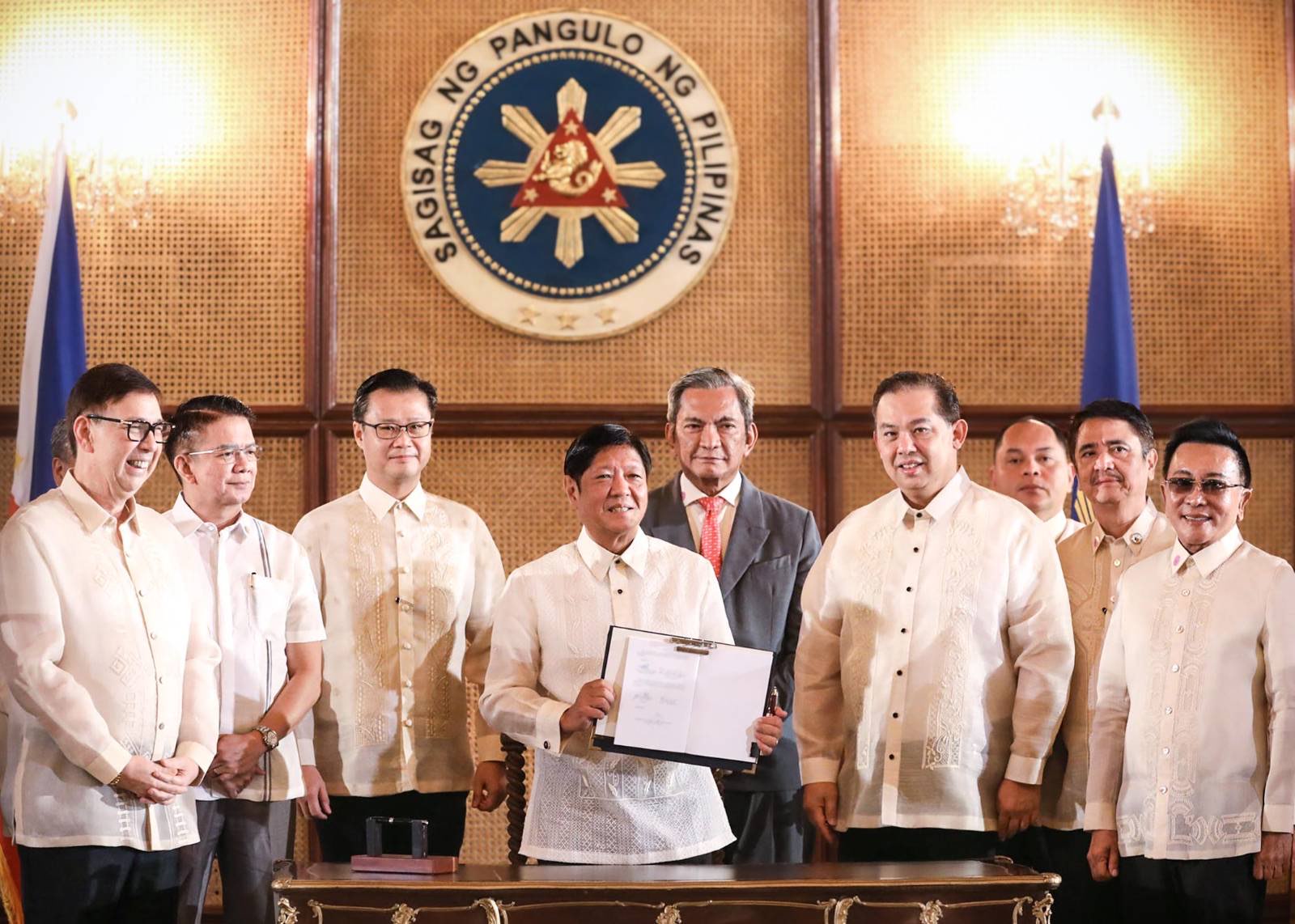
By Brian Campued
President Ferdinand R. Marcos Jr. on Wednesday signed into law Republic Act (RA) No. 12023 or the Value-Added Tax (VAT) on Digital Services Law, which imposes a 12% VAT on foreign digital services providers (DSPs) to generate additional revenue for various government infrastructure and social services programs in the next five years.
A priority measure of the Marcos Administration, RA 12023 aims to address revenue losses due to ambiguities in existing legislation regarding the taxation of e-commerce transactions.
In his speech during the ceremonial signing of the law in Malacañang, the President clarified that the new law does not introduce new taxes but aims to level the playing field for both local and foreign DSPs in the country.
“With this law, we say that if your presence in the Philippine market is as real as your profits, then your tax responsibilities should also be equally tangible,” Marcos said.
“If you are reaping the rewards of a fruitful digital economy here, it is only right that you also contribute to its growth,” he added.
According to the Chief Executive, the newly signed measure will strengthen the authority of the Bureau of Internal Revenue (BIR) and streamline the agency’s process in collecting VAT on digital services, such as online search engines, online marketplaces, cloud services, online media and advertising, digital music, video games, and video-on-demand among others.
“After all, whether you are a small tech start-up or a global tech giant based halfway around the world, if you are making money here in the Philippines, you are part of our community. And with that comes a shared responsibility,” Marcos stressed.
Despite this, the President assured the public that the government has taken a “deliberate and measured approach” to ensure that the tax imposed by the law will not crush innovation or hinder growth.
About P105 billion in revenue is, likewise, expected to be collected from digital services in the next five years, which will be used to build at least 42,000 classrooms, over 6,000 rural health units, and 7,000-kilometer farm-to-market roads.
Additionally, 5% of the revenues generated by the law will be allocated to the local creative industry.
“This means our artists, filmmakers, musicians—the very people who fill our platforms with stories and with content—will directly benefit. This ensures that our creative talents are not just surviving in a competitive digital market but will be allowed to prosper,” Marcos explained.
Meanwhile, the law spares educational-related digital services to ensure that all forms of education remain affordable and accessible to Filipinos. This includes online courses and webinars offered by private institutions and the sale of online subscription-based services to educational institutions recognized by government agencies. —iro
